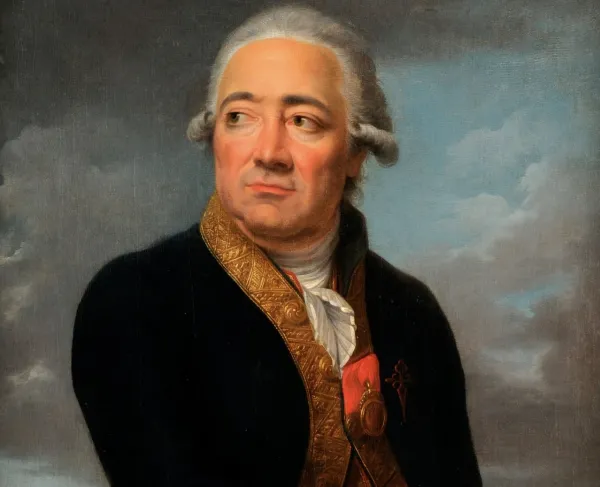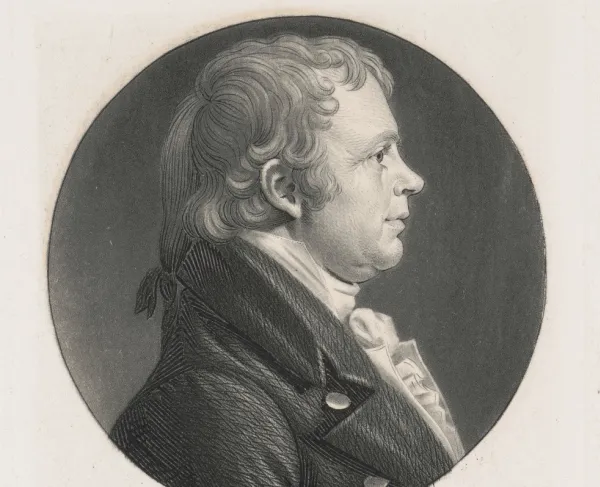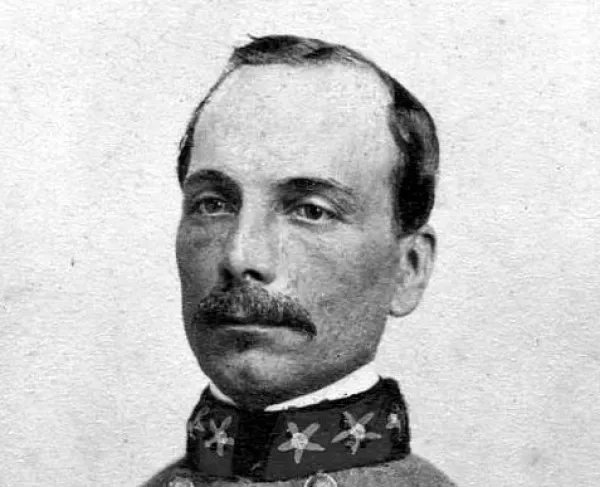José de Mazarredo y Salazar

José de Mazarredo y Salazar was a Spanish Navy officer, cartographer, and diplomat. He played an important, though often overlooked, role during the American Revolution, helping the Americans in their fight against the British. Mazarredo practiced the principles of the Enlightenment, using science to modernize Spain’s navy, which was put to the test at sea during the Revolutionary War.
Mazarredo was born on March 8, 1745. He joined the Navy at age 14, serving aboard the ship Andaluz. His interest in science, combined with quickly learning naval skills, helped him at the beginning of his military career. In the late 1750s, he became Assistant of the Maritime Department in Cartagena, Spain. By 1772, he had sailed to the Pacific, and in 1774 took part in naval mapping endeavors off the coast of South America. When the Spanish attacked Algiers in 1775, he made important decisions regarding navigation, anchorage, and the disembarkation for a 20,000-strong force. By 1778, he commanded a ship of the line—the largest class of ship in 18th-century navies.
Mazarredo dedicated study and time to modernizing the Spanish Navy. The Enlightenment Era emphasized using scientific methods and reasoning to improve processes, and Mazarredo brought these practices into naval life and warfare tactics. His book, Rudimentos de Táctica Naval para Instrucción de los Oficiales Subalternos de Marina (Rudiments of Naval Tactics for the Instruction of Junior Naval Officers) (1776), provided a unique approach to naval tactics and was adopted by the Spanish Navy. He also completed hydrographic surveys of the Iberian Peninsula, contributing to an important Maritime Atlas. (A hydrographic survey is the science of measuring and describing bodies of water.) He later helped organize the navy's oceanic mapmaking studies by founding the Dirección de Hidrografía (Hydrographic Office) in 1797.
Spain officially joined the American Revolution in 1779 through the Treaty of Aranjuez. While Spain hoped to assist the new United States, it hoped to weaken Britain’s empire by specifically reducing Britain’s influence in the Atlantic Ocean and recovering Gibraltar, Menorca, and Florida. Spain's entry into the war forced Britain to divide its naval forces to confront multiple threats, weakening its efforts in North America. In addition to its naval power, Spain provided the United States with financial aid, military supplies, and a new military front with Bernardo de Gálvez's military campaigns along the Gulf Coast.
Mazarredo’s most significant contribution to the American Revolution involved capturing a British convoy. He and Admiral Luis de Córdova planned and executed this engagement, which took place off the Azores, islands that belonged to Portugal. On August 9, 1780, Córdova's fleet engaged the British convoy of 63 merchant ships. The Spanish triumphed in this engagement, capturing 55 ships. The captured cargo totaled 80,000 muskets, numerous artillery pieces, 300 barrels of gunpowder, uniforms, and over £1,000,000 in gold and silver (equivalent to £168,000,000 today). 3,000 British soldiers and sailors were also taken prisoner. This action disrupted the British supply lines, depriving them of resources headed to their armies in the Americas.
Mazarredo also participated in the Battle of Cape Spartel two years later on October 20, 1782. This indecisive battle occurred after a British fleet commanded by Admiral Richard Howe successfully brought supplies to Gibraltar, temporarily breaking through the Spanish and French blockade of that port city. However, Mazarredo’s involvement in the fight seems to have been limited, with some accounts suggesting his ship did not see direct action.
Revolutionary ideas did not end with the Treaty of Paris, which ended the American Revolution in 1783. By the end of the decade, France experienced a revolution that descended into a bloody Reign of Terror. Other European powers warily watched, anxious about their own countries and their alliances. Mazarredo went to sea during the French Revolutionary Wars, commanding a Spanish fleet in the Mediterranean and rescuing soldiers and civilians from the besieged port town, Roses. In 1793, he was awarded the Order of Santiago, a military recognition and knighthood.
Mazarredo raised the alarm that the Spanish navy’s power was declining, and when he accused the government of failures, he was dismissed from command and imprisoned. When the Battle of Cape St. Vincent resulted in a Spanish defeat, Mazarredo’s warnings were recognized, and he returned to command. He helped defend the city of Cadiz against British attack, forcing Lord Jervis and Sir Horatio Nelson—famous British navy commanders—to turn back. By 1799, Mazarredo sailed with a combined French and Spanish fleet, threatening the British in the Mediterranean and along Spanish coastlines. However, Mazarredo limited the cooperation between the French and Spanish navies, trying to focus on objectives that benefited his own country. In 1801, Mazarredo resigned his position as a squadron commander, and three years later, he journeyed to France as an ambassador. He clashed with Napoleon and was eventually recalled. He died in Madrid, Spain, on July 29, 1812.
José de Mazarredo y Salazar helped to modernize the Spanish Navy, advocating for scientific principles in naval warfare. His contributions to naval tactics, cartography, and involvement in the 1780 convoy capture proved important in the American Revolution and during the French Revolutionary Wars.





